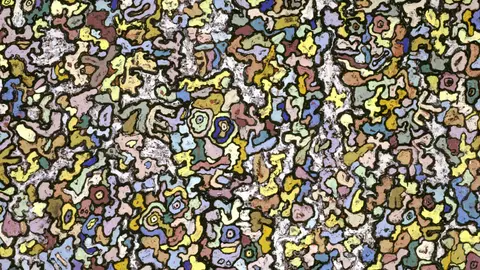Postgraduate fellowships abroad: researching alongside a Nobel laureate
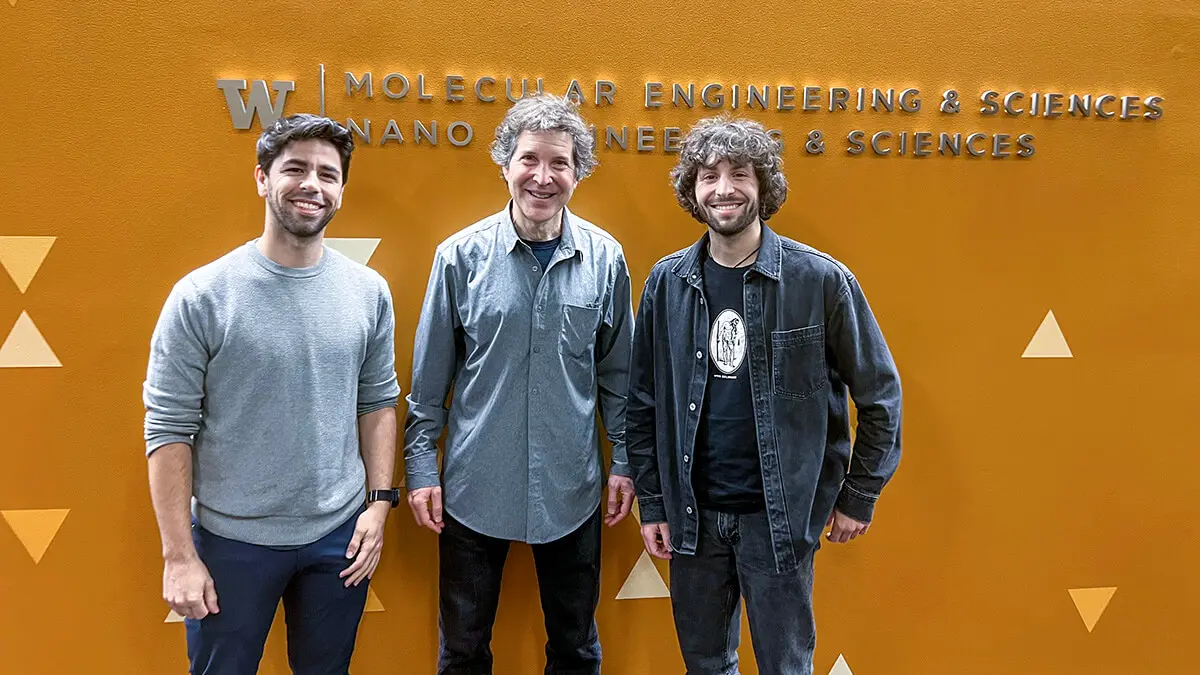
- Technological revolution with a Nobel laureate
- A community that fosters talent
- A promising future: between research and entrepreneurship
Their access to this PhD programme was not by chance, but with the support of the "la Caixa" Foundation's postgraduate scholarships abroad. Their careers reflect the impact of this initiative, which is committed to talent and excellence in scientific and technical research on an international scale.
Marc Expòsit (Girona, 1995) and Alfredo Quijano (Valencia, 1993) agree on the positive impact that the "la Caixa" Foundation Scholarship programme has had on their careers. For both, it has been a unique opportunity to gain access to world-leading institutions, such as the Baker Lab at the University of Washington, a centre that has revolutionised the field of biotechnology with artificial intelligence models capable of designing proteins from scratch.
For Expòsit, the grant was key to being admitted to the university's doctoral programme: "In addition to the funding, you have the distinction of having obtained this grant, and that is a very important point in your favour in the university selection process".
Quijano also highlights the support provided by the scholarship programme during the process: "If you don't have someone to guide you, it is very difficult to access the US education system because it is very competitive and there are many administrative obstacles. The scholarship helps you understand how it works.
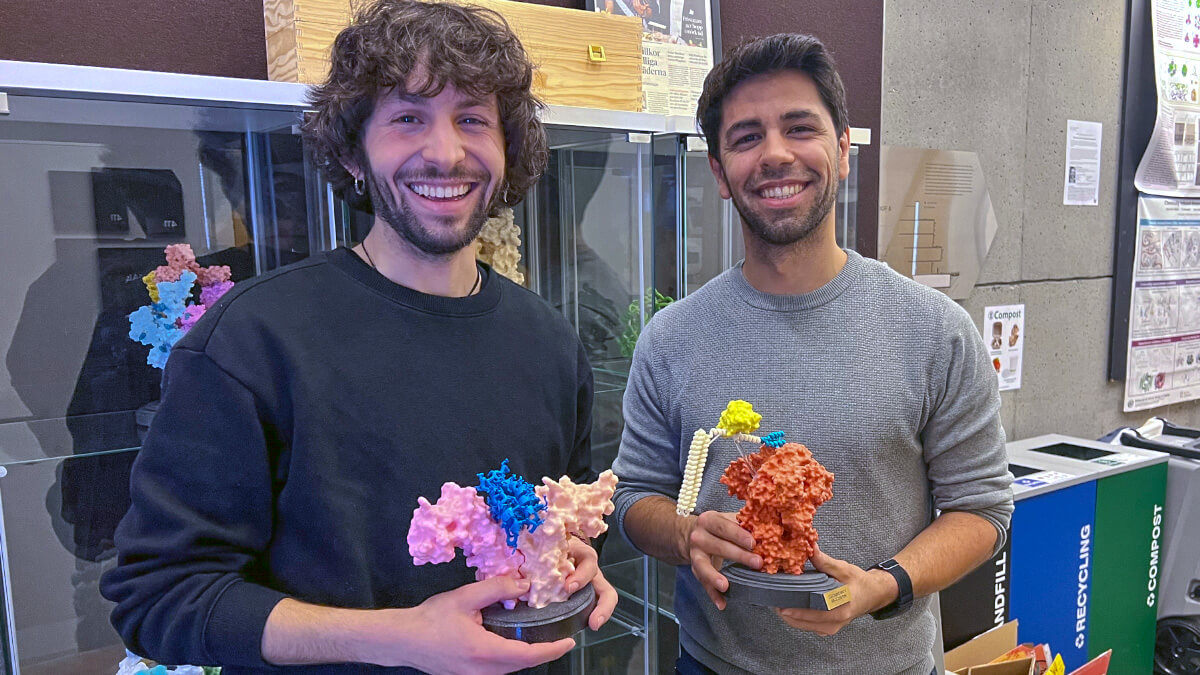
Technological revolution with a Nobel laureate
David Baker is one of the most influential figures in computational protein design. His work with open-source artificial intelligence models has made it possible to create completely new proteins that do not exist in nature.
Proteins are made up of sequences of 20 amino acids that, combined in separate ways, define their structure and function. "To test all the possible combinations in the laboratory, we wouldn't have enough of all the atoms in the universe," explains Expòsit. "What David has done is find algorithms that help us explore these possibilities to create proteins from scratch with new functions, which allow us to change biology.
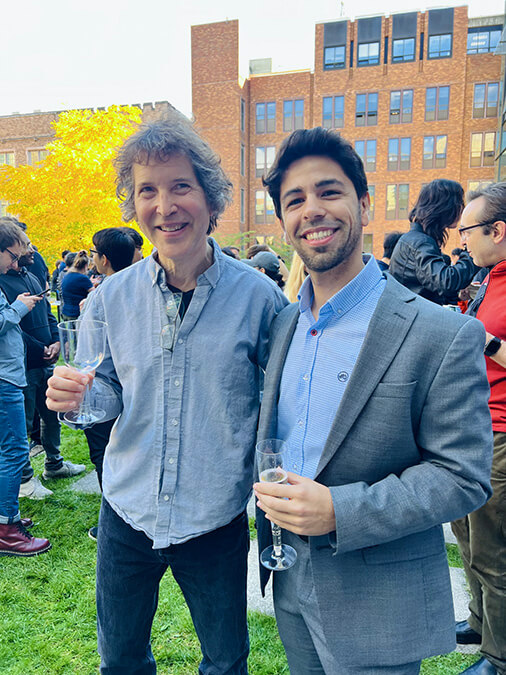
The biochemist and computational biologist's research has completely transformed the approach to numerous biomedical and environmental challenges, from the development of new drugs and treatments to the degradation of plastic. The committee that awarded him the Nobel Prize in chemistry in 2024 recognised the impact of his findings and underlined the enormous benefits this knowledge will bring to humanity.
The Baker Lab, the Seattle laboratory that bears his name, is a hotbed of talent and innovation. Baker fosters an environment where collaboration is key and teamwork drives scientific progress: "David always says that his lab is like a brain: the more connections there are between the neurons - the researchers - the smarter it is", says Expòsit.
In his PhD in Molecular Engineering under Baker's direction, Expòsit works on the design of cytokines, small proteins that regulate the growth and activity of other cells of the immune system: "We are in charge of designing new response messages for the immune system, in order to treat diseases such as cancer or autoimmune disorders".
For Quijano, his time at the Baker Lab was a turning point, both in his research under Baker's mentorship and in his subsequent career. During his PhD in Bioengineering and Computational Protein Design, he worked on the design of proteins that change their activity depending on their environment. This project applied to cancer therapies led to the founding of his first company, Neoleukin Therapeutics, focused on reducing the side effects of cancer treatments.

The same principle applied to diagnostics also led him to publish in Nature his study on the development of luminescent biosensors designed to detect biomarkers related to coronavirus, among other pathologies.
After completing his PhD, he continued to explore these lines of research and, together with David Baker and Daniel Silva - also a postdoc at the Baker Lab - co-founded Monod Bio, where he is currently working. "We are the only company that is using protein design with artificial intelligence to improve two things: on the one hand, the diagnostic tools, i.e. the proteins used in diagnostics to make them more accurate and sensitive; and on the other hand, the reagents used by researchers in the lab, with the aim of providing them with cheaper and faster resources," he says.
The Nobel Prize has given an unprecedented boost to the field of research, attracting more interest from the scientific community, industry, and investors. "David Baker, who is a very humble person and whose priority is to continue his research, said that what made him most proud of winning the Nobel Prize was being able to share it with his parents, now that they are still alive, and the positive impact the prize can have on all of us working in this field," Quijano recalls.
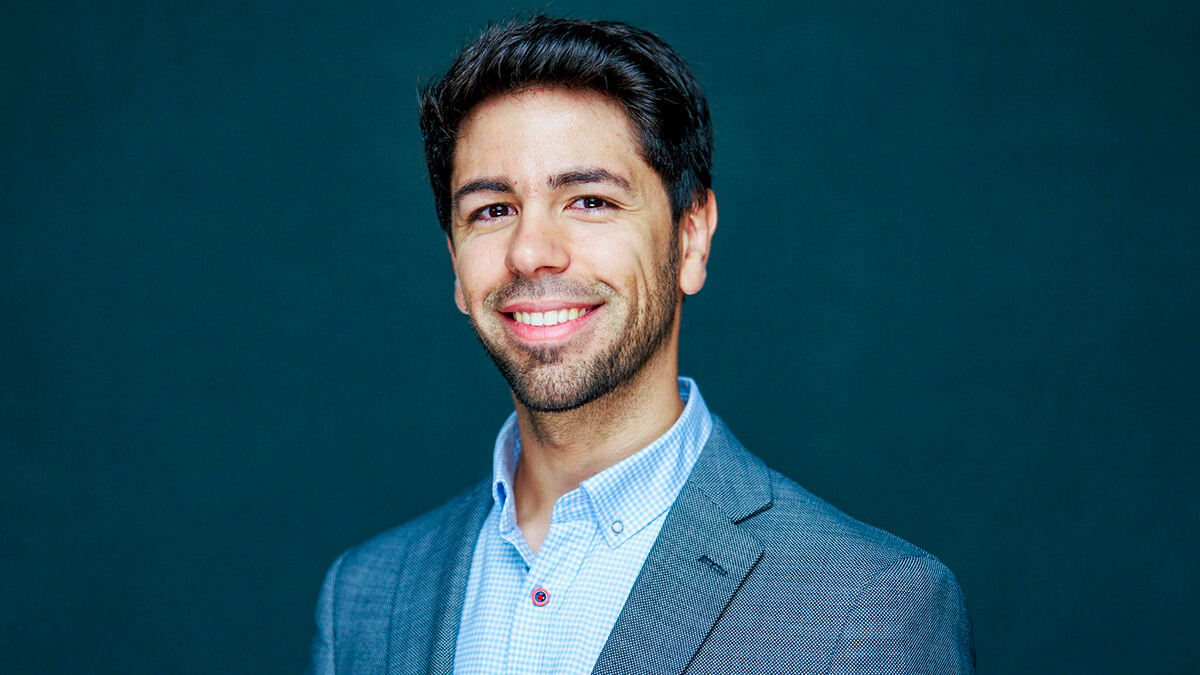
A community that fosters talent
For Quijano, another of the strong points of the "la Caixa" Foundation scholarships is the community of scholarship holders, a network of talent that continues to be active even when the scholarship ends. "The scholarship programme looks for students with initiative, who want to study abroad, to create new things. The "la Caixa" Foundation invests in people, and you realise this when you meet other scholarship holders," he says.
This network of contacts has been key for both researchers to find guidance in their careers and access new opportunities. "I find it a phenomenal resource.
The grant generates that common ground with people who can advise you and solve your doubts. These are unbelievably valuable relationships," Expòsit stresses. Thanks to this connection, he got to know David Baker's work through Quijano, who recommended him to apply to the University of Washington.
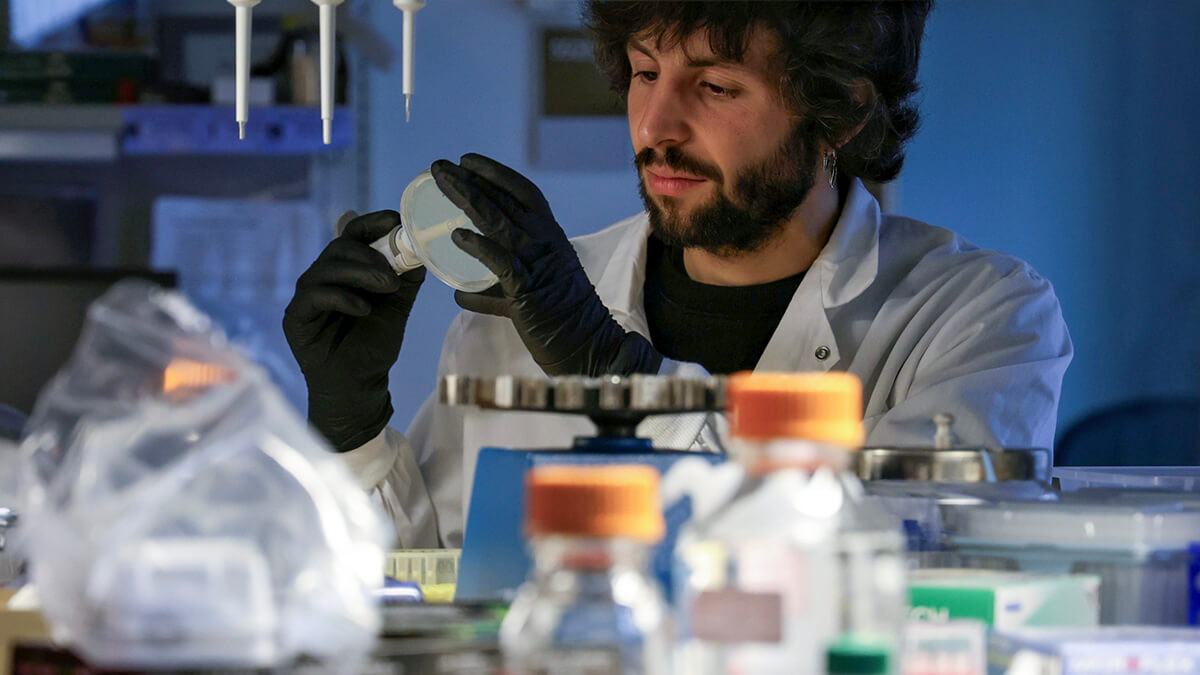
A promising future: between research and entrepreneurship
In the final stretch of his PhD, Expòsit is looking to the future with enthusiasm. In the long term, his goal is to return to Catalonia, to his origins; but soon he contemplates the possibility of undertaking or continuing his training with a post-doctorate in another laboratory in the United States.
Quijano, for his part, is committed to consolidating his career at the intersection between research and entrepreneurship in the biotechnology field. His aim is to promote the work of researchers and contribute to the development of more accurate and accessible diagnostic tools.
Both agree that the "la Caixa" Foundation grant has been a determining factor in their academic and professional careers. For Quijano, it represents a unique opportunity for future researchers: "My recommendation is that young people should apply without hesitation. I will always be grateful for the "la Caixa" Foundation grant, and I am delighted to help the new generations in any way I can".

